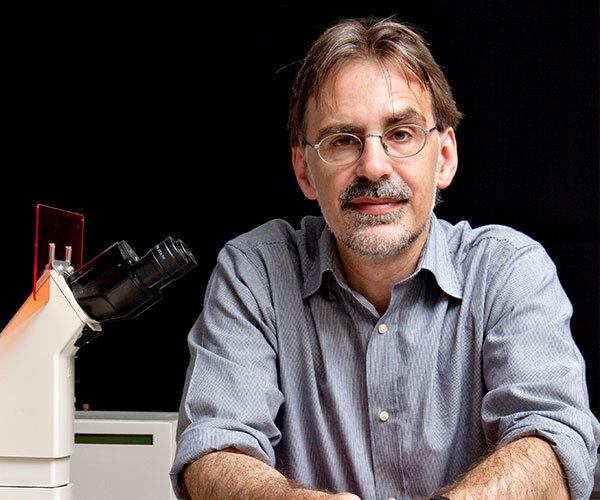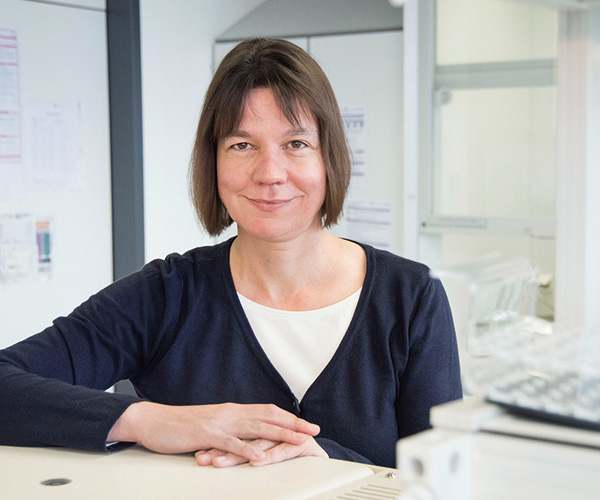Home institution
School for Cardiovascular Disease in Maastricht (Maastricht, Netherlands)
Supervisory team
primary: Prof. Dr. Johan Heemskerk (CARIM), secondary: PD Dr. Kerstin Jurk (CTH), tertiary: Prof. Dr. Albert Sickmann, PhD Dr. Marijke Kuijpers (ISAS)
Project locations
CARIM (Maastricht, Netherlands), CTH (Mainz, Germany), ISAS (Dortmund, Germany)
Joint PhD Degree
Universities of Maastricht and Mainz
Project details
Interactions between platelets, coagulation, and the vessel wall are central to regulatory mechanisms that prevent or amplify coagulation and thrombo-inflammation. At the proinflammatory and prothrombotic arterial vessel wall, coagulation is dysregulated via two pathways: (i) secretion of coagulant proteins by platelets, and (ii) defective thrombin-scavenging thrombomodulin on endothelial cells. We hypothesize that the reciprocal amplification of dysfunctional platelets and endothelial cells contribute to thrombo-inflammatory diseases.
ESR9 will elucidate how the coagulation steering by platelets and anticoagulation regulation by endothelial cells becomes dysfunctional. ESR9 will adapt a novel microfluidics technique of 'inflamed vessel-on-a-chip', in which human endothelial cells are subjected to flowing coagulating blood. Multicolour (multiphoton) microscopy will be used to measure in real-time local endothelial and platelet activation, thrombus buildup, thrombin and fibrin formation, and leukocyte adhesion. Platelet-derived (anti)coagulant factors will be blocked pharmacologically, whereas endothelial thrombomodulin will be downregulated by siRNA technology. The importance of identified (anti)thrombotic pathways will be validated by: (i) modulating the release of bioactive molecules from endothelial cells; (ii) interfering with platelet secretion; (iii) checking for a role of extracellular vesicles; and (iv) using blood samples from patients with a disposition for thrombosis and inflammation. At ISAS, ESR9 will take advantage of the small-scale quantitative and N-terminal proteomics facility by performing mass spectrometric analyses of plasma and cell proteins from vessels-on-a-chip to identify post-transcriptional coagulation modifications, such as regulated by platelets and (inflamed) endothelial cells. At the second host CTH, the discovered pathways will be validated with blood from mice with a pro-atherogenic propensity, or with a platelet secretion defect. The role of factor XI will be examined in a flow-chip assay, since platelets promote vascular inflammation by amplifing factor XI-dependent thrombin generation via their secretory products.
References
- Beck F, Geiger J, Gambaryan S, Solari FA, Dell'Aica M, Loroch S, Mattheij NJ, Mindukshev I, Potz O, Jurk K, Burkhart JM, Fufezan C, Heemskerk JW, Walter U, Zahedi RP, Sickmann A. Temporal quantitative phosphoproteomics of ADP stimulation reveals novel central nodes in platelet activation and inhibition. Blood. 2017; 129: e1-e12.
- Loosse C, Swieringa F, Heemskerk JWM, Sickmann A, Lorenz C. Platelet proteomics: from discovery to diagnosis. Expert Rev Proteomics. 2018;15:467/76.
- De Witt SM, Swieringa F, Cavill R, Lamers MME, van Kruchten R, Mastenbroek T, et al. Identification of platelet function defects by multi-parameter assessment of thrombus formation. Nat Commun. 2014;5:4257.
Desirable student skills
- Experience in cell culture, microfluidics
- Background in the analysis of platelets and coagulation
- Interest in analytical methods: proteomics, phosphoproteomics, data evaluation and bioinformatics



